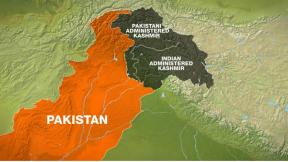
"If you fear a breach between the two, appoint an arbitrator from his people and an arbitrator from her people. If they both want to set things right, Allah will bring about reconciliation between them. Allah knows all, is well aware of everything" (Quran 4:35).
The first effort to resolve should be at the family/friends level
In a marriage conflict an attempt should first be made to resolve the dispute at the family level, before it is aggravated and leads to the disruption of the matrimonial tie. This may be the reason that the Prophet's marriage sermon always included emphasis on maintaining strong ties with the relatives.
The procedure to be followed is that two persons, one on behalf of each family, should be nominated to look into the matter together and devise means whereby the misunderstanding between the spouses may be brought to an end.
Who should nominate these mediators?
God has not specified this so as to allow people full freedom to choose the most convenient arrangement.
The parties would be free, for instance , to decide that the mediators be nominated either by the spouses themselves or by the elders of their respective families or in the absence of close relatives, close friends or other trusted individuals.
Historically if the dispute was brought in an Islamic court, the courts used the right to nominate mediators, representing the families of both parties, before referring the matter for judicial verdict.
Authority of these mediators
The Hanafi and Shafi'i schools of Islamic law are of the opinion that these individuals normally have no authority to issue a binding verdict. All they can do is recommend the solution they support, after which the spouses have the right to accept or reject their recommended solution.
However, if the spouses have nominated the mediators to act on their behalf in regard to divorce (either Talaq, divorce initiated by the husband, or Khul, divorce initiated by the wife), they will then be bound by the verdict of their nominated mediators according to Hanafi or Shafi'i schools.
Other scholars, however, argue that the authority of these arbitrators/mediators is limited to deciding how the spouses should reconcile their differences, and it does not extend to the annulment of marriage.
A third group of scholars thinks the mediators have full authority both in respect of reconciliation and annulment of marriage.
This article is based on the discussion by Syed Abul Ala Maududi in Towards Understanding the Quran.








Add new comment